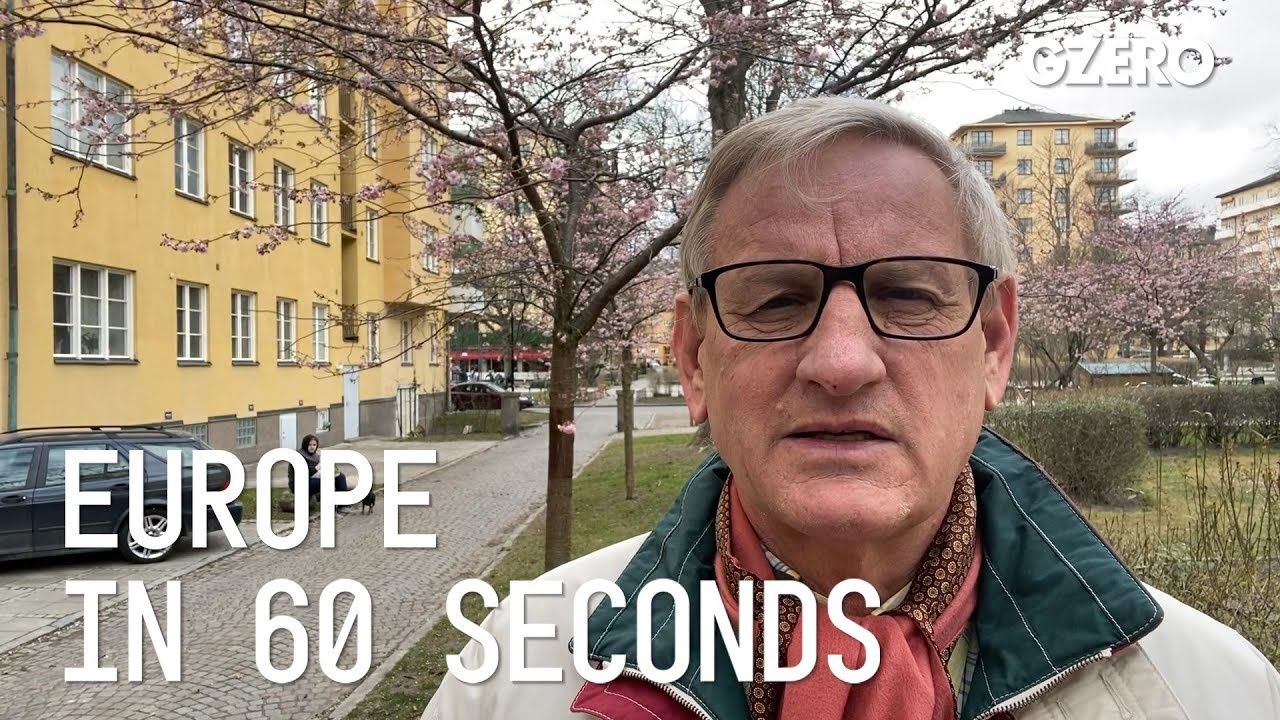popular
Viktor Orban's Assault on Democracy in Hungary

Viktor Orban's Assault on Democracy in Hungary | Coronabonds for debt | Europe In :60 | GZERO Media

Carl Bildt, former Prime Minister and Foreign Minister of Sweden, provides his perspective: What are going to be the consequences of what Viktor Orban is doing in Hungary at the moment?
Yea, that remains to be seen. But he's now got his majority in parliament to decide that he could rule by decree and he can virtually rule forever because he can have that prolonged by his own majority. And he has also severe prison penalties for those spreading false rumors or things like that. So, it is a disturbing development. It's a slippery slope down to something that we have seen in the past in Europe, the reaction of other countries will be most important.
Second question: What is this discussion about coronabonds?
Yep, that's the beginning of a complicated discussion, how Europe should sort of extend its solidarity when it comes to taking care of and sorting out the debt situation primarily of the countries that are the hardest hit by what is happening now. At the moment it is Italy and Spain that is the focus, but exactly who will be the ones further down the road, will that be. New proposals will be on the table in the next few days and then we'll see how the discussion goes on. Complex but important, something will happen.
Prime Minister Narendra Modi, with President of the European Council António Luís Santos da Costa, and President of the European Commission Ursula von der Leyen, at Hyderabad House, in New Delhi, India, on Jan. 27, 2026.
On Tuesday, the world’s largest single market and the world’s most populous country cinched a deal that will slash or reduce tariffs on the vast majority of the products they trade.
Canadian Prime Minister Mark Carney has repeatedly tussled with US President Donald Trump, whereas Mexican President Claudia Sheinbaum has tried to placate him. The discrepancy raises questions about the best way to approach the US leader.
10,000: The number of Hamas officers that the militant group reportedly wants to incorporate into the US-backed Palestinian administration for Gaza, in the form of a police force.
Walmart is investing $350 billion in US manufacturing. Over two-thirds of the products Walmart buys are made, grown, or assembled in America, like healthy dried fruit from The Ugly Co. The sustainable fruit is sourced directly from fourth-generation farmers in Farmersville, California, and delivered to your neighborhood Walmart shelves. Discover how Walmart's investment is supporting communities and fueling jobs across the nation.